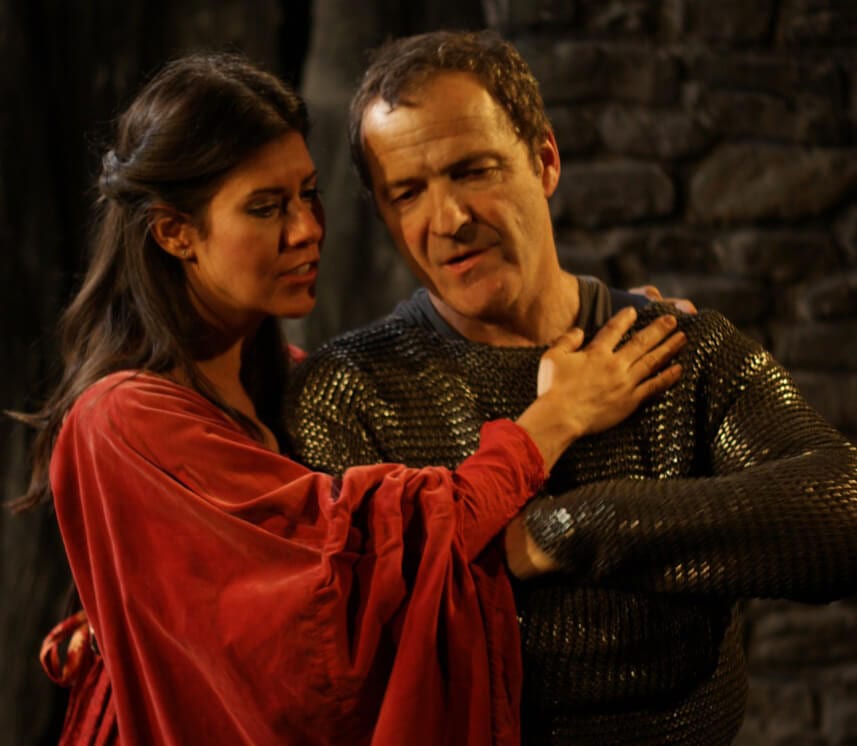The Scottish play is always a crowd pleaser: it is bloody, full of dark intent and supernatural hijinks, sensual murderesses, and carved out of the best poetry of Shakespeare’s tragic phase. Very little needs to be done to the play to make it enjoyable, but alas, Cordial Production’s Macbeth did not quite live up to the Bard. It fails to please on all accounts, and induces far more eye rolling and exasperating sighing than expected of the night.
A short recap: the play’s titular character plots and performs the murder his king, with the aid of his wife, throwing their country into turmoil and his mind into chaos. Unfortunately, the production suffers from a surfeit of problems. The decision to stage the production in its original medieval context is not a new one, but this production’s set and costume looked as if it had stepped out from Monty Python and the Holy Grail making it appear more comical. Silly chain mail, swishy cloaks and skintight leggings seem like the trappings of an old Hollywood attempt at medieval England. Dramatic “death music” (seemingly taken from the opening credits of Mr Bean) preempts any death, and stock sounds occasionally fill the air at inappropriate intervals. Scene transitions are awkward and often punctuated by audible noises from backstage. This entire affair feels amateurish at best, and after a point, it is quite ridiculous. That being said, a lot of this can be forgiven if the production had been bolstered by commendable performances, but this did not happen.
The actors’ earnestness cannot be faulted; they certainly try their best and, for the most part, stick with the play for its entire run. Macbeth aims high and hard for a tortured persona which he doesn’t quite achieve as much as he does come off as a flat, one-dimensional character with not very much intent of his own. Lady Macbeth with all her complexity and sensual mockery of the men of the narrative is pared down to a sharp, shrewish nag with none of the persuasive power Shakespeare’s language lends her. Macduff is blustery and physically violent, banging about the small stage unnecessarily, Banquo is as boring as drying paint and Malcolm seems a facsimile taken from Shakespeare’s comedies. The other actors’ performances could only be termed “slovenly” – they hardly tried to emote, and their delivery was either a series of mutterings or loud proclamations that did little to convey any of the meaning in the Bard’s text.
Macbeth can offer some difficult ideas and topics to the audience member; it makes deep and complex interrogations into the role of rulers and their subjects, personal intent versus external influence, and the power of Fate in our everyday lives. This performance of the play simply did not engage with any of these nuanced and rich discussions. The entire production becomes merely an exercise in line recitation then, and forgets all attempts at conveying meaning and message. Performing Shakespeare is a great way to get into theatre – one is assured of great writing and plot. But if performed merely for the sake of performing Shakespeare, all intent is lost. Macbeth, assured and lucid in some parts despite the overall clumsiness, fails to convey any sort of intention on his part. We get no sense of who he is, why he does anything or perhaps even how he relates to those around him. He feels like his shadow, strutting about with sound and fury and then is heard from no more. A production of any Shakespeare – indeed any play for that matter – must begin with clear vision of intent, and in this production the actors are merely speaking the words without understanding or listening to them.

